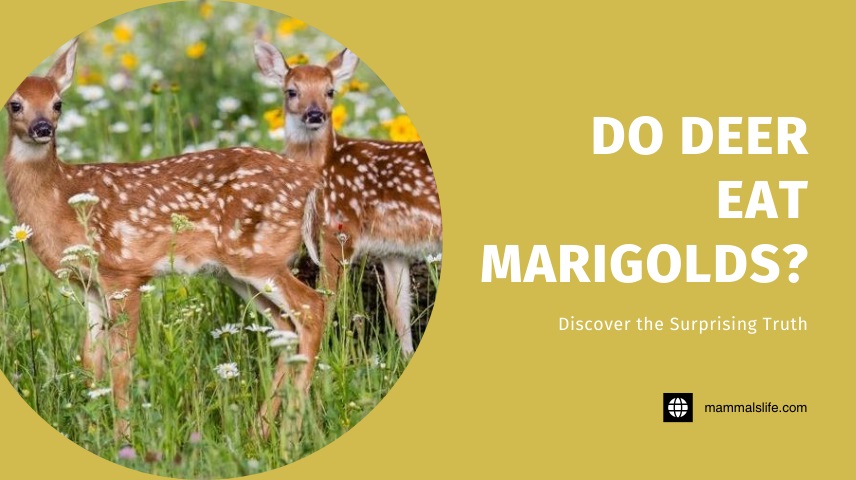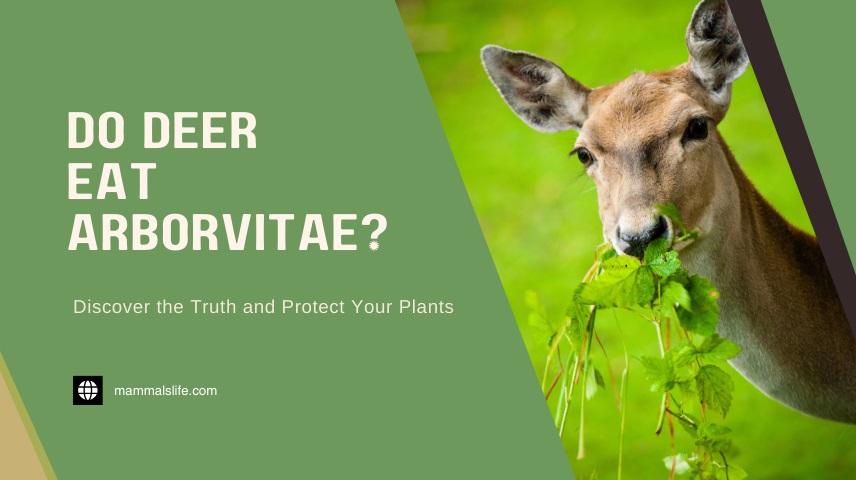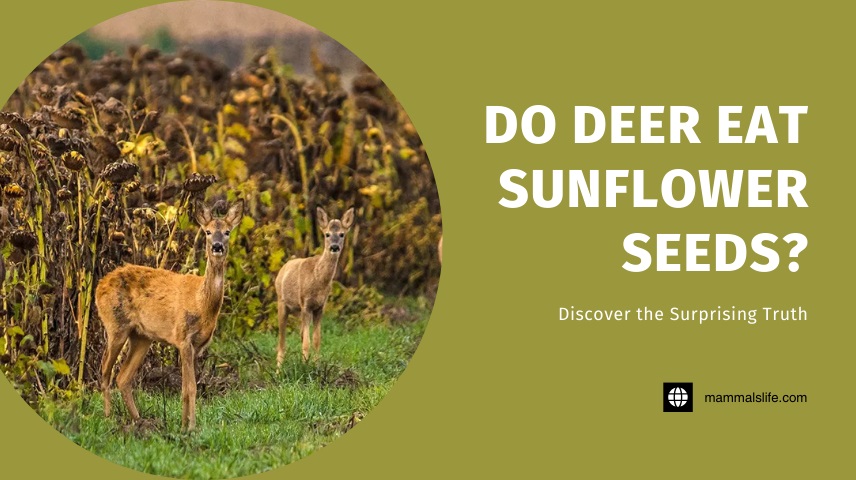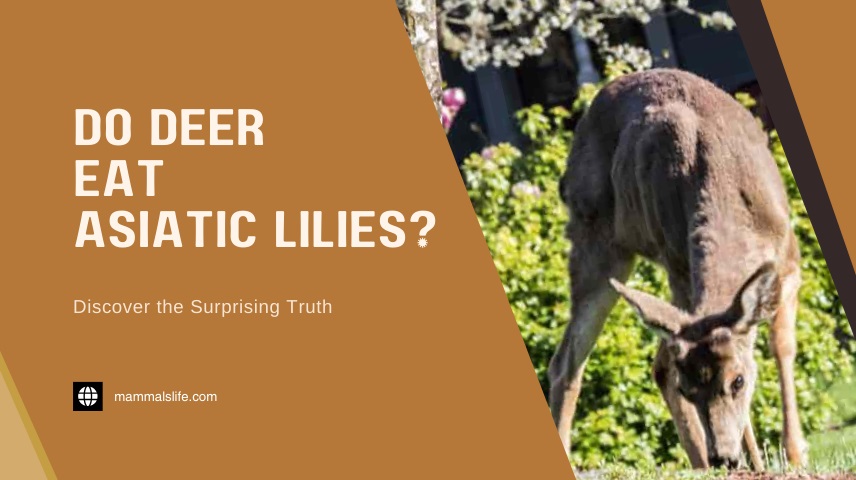Last Updated on February 22, 2025 by Mammals Life
Deer sometimes eat marigolds, though they usually avoid them due to their strong scent. Marigolds are not a favorite for deer.
Marigolds, with their vibrant colors and pungent smell, often serve as a natural deterrent for deer. Gardeners frequently plant marigolds to keep deer away from more appealing plants. While not entirely foolproof, marigolds can reduce the likelihood of deer nibbling on garden vegetation.
These hardy flowers are easy to grow and maintain, making them a popular choice for both aesthetic and practical purposes. Their ability to repel deer while adding beauty to gardens makes marigolds a valuable addition to any landscape. Understanding deer behavior and plant preferences helps gardeners make informed decisions for protecting their gardens.
Introduction To Deer And Marigolds
Gardening is a fun hobby for many. But deer can be a challenge for gardeners. Understanding if deer eat marigolds helps in planning your garden.
Deer’s Diet Basics
Deer eat many types of plants. Their diet changes with the seasons. They munch on leaves, fruits, and shrubs. Deer love tender plants and new shoots. Gardens often attract these hungry animals.
- Spring: Deer eat buds and young plants.
- Summer: They munch on fruits and vegetables.
- Fall: Deer enjoys nuts and acorns.
- Winter: They eat twigs and bark.
Marigolds In Gardens
Marigolds are popular garden flowers. They have bright, cheerful colors. Many gardeners plant marigolds to add beauty. But are marigolds safe from deer?
Deer usually avoids marigolds. The flowers have a strong scent. Deer do not like this smell. Marigolds are also bitter to taste. This makes them less appealing to deer.
Here is a simple table showing deer-resistant plants:
| Plant | Deer Resistance |
|---|---|
| Marigolds | High |
| Lavender | High |
| Foxglove | Moderate |
| Hosta | Low |
Planting marigolds can help protect other plants. The strong scent of marigolds keeps deer away. Adding marigolds to your garden is a smart choice.
Read More – Do Deer Eat Dianthus? Diet Basics, Protecting Tips, Alternative Plants
Why Deer Might Eat Marigolds
Understanding why deer might eat marigolds can help gardeners protect their plants. Deer are known to nibble on various plants, and marigolds are no exception. Let’s explore the reasons behind this behavior.
Nutritional Value
Deer seek out plants with high nutritional content. Marigolds provide some essential nutrients that deer need.
- Proteins: Marigolds have protein that helps deer grow strong.
- Vitamins: They contain vitamins that support deer health.
- Minerals: Essential minerals in marigolds keep deer bones healthy.
Seasonal Factors
Deer eat marigolds more often during certain times of the year. This is usually linked to food availability and weather conditions.
| Season | Reason for Eating Marigolds |
|---|---|
| Spring | Other plants are just starting to grow. |
| Summer | Deer look for easily accessible food sources. |
| Winter | Food is scarce, and deer eat what they find. |
During these times, marigolds become an easy target for hungry deer.
Signs Of Deer Damage
Deer can wreak havoc on your garden. They are especially fond of marigolds. To protect your plants, you need to recognize the signs of deer damage.
Identifying Bite Marks
Deer have unique bite patterns. They lack upper front teeth, so they rip plants instead of cleanly cutting them. Look for jagged edges on marigold leaves and stems. These ragged bites are a telltale sign of deer.
Deer bites often leave behind uneven, torn pieces. Unlike rabbits, which clip plants cleanly, deer bites appear rough. Inspect your plants closely to identify these jagged bite marks.
Other Indicators
Beyond bite marks, there are other signs of deer presence. Look for deer tracks in the soil. Their hooves leave distinct, heart-shaped prints.
Deer droppings are another clear indicator. These look like small, black pellets scattered around your garden.
Check for broken stems and trampled plants. Deer are large animals and can cause physical damage by stepping on your marigolds. This often results in crushed or bent stems.
| Signs | Description |
|---|---|
| Bite Marks | Jagged, uneven edges on leaves and stems. |
| Tracks | Heart-shaped hoof prints in the soil. |
| Droppings | Small, black pellets scattered around. |
| Physical Damage | Broken stems and trampled plants. |
By learning to identify these signs, you can take steps to protect your garden. Knowing what to look for helps you act quickly to prevent further damage.
Read More – Do Deer Eat Gardenias? Damage Signs, Natural Deterrents, Maintenance Tips
Preventing Deer From Eating Marigolds
Deer loves to munch on marigolds. This can upset gardeners. But there are ways to keep deer away. Here are some effective methods to protect your marigolds.
Natural Deterrents
Using natural deterrents is a great way to keep deer at bay. Here are some options:
- Human Hair: Spread human hair around your garden. Deer dislike the scent.
- Soap: Hang bars of soap from trees. The smell confuses deer.
- Garlic Spray: Mix garlic with water and spray on plants. Deer find the smell unpleasant.
- Egg Mixture: Combine eggs and water, then spray it. Deer avoid the smell.
Fencing And Barriers
Physical barriers work well to protect marigolds from deer. Consider these options:
| Type | Details |
|---|---|
| Deer Fences | Install a tall fence. It should be at least 8 feet high. |
| Netting | Cover your plants with netting. This keeps deer from reaching them. |
| Electric Fences | Use electric fences. They provide a mild shock to deter deer. |
These methods can help you protect your marigolds effectively. Choose the one that suits your garden best.
Alternatives To Marigolds
While marigolds are lovely, deer often nibble on them. But, there are many deer-resistant plants you can grow instead. These alternatives not only add beauty to your garden but also keep deer away. Let’s explore some great options.
Deer-resistant Plants
Deer-resistant plants are a smart choice. Here are some top picks:
- Lavender: Its strong smell keeps deer away.
- Rosemary: This herb is not only useful but also deer-resistant.
- Yarrow: Its bitter taste discourages deer from eating it.
- Foxglove: Beautiful blooms that deer avoid.
- Catmint: Deer dislikes its scent and texture.
These plants are not only functional but also add charm to your garden.
Companion Planting Tips
Companion planting helps deter deer. Here are some tips:
- Mix and Match: Plant deer-resistant plants next to vulnerable ones.
- Use Strong Scents: Plants like mint and garlic deter deer.
- Create Barriers: Use thorny plants to protect delicate flowers.
- Layer Planting: Tall, deer-resistant plants can shield shorter ones.
These tips help protect your garden and keep it thriving.
Read More – Do Deer Eat Oats? Nutritional Benefits, Behavioral Insights, Practical Tips
Frequently Asked Questions
Do Deer Eat Marigolds?
Yes, deer often eat marigolds if hungry enough.
How To Protect Marigolds From Deer?
Use deer repellents or fencing to protect marigolds.
Are Marigolds Deer-resistant Plants?
Marigolds are not completely deer-resistant but are less preferred.
What Attracts Deer To Marigolds?
The scent and taste can attract deer to marigolds.
Can Marigolds Deter Deer?
Marigolds can deter deer slightly but not reliably.
Which Plants Repel Deer Effectively?
Lavender, rosemary, and sage are effective deer repellents.
Conclusion
Marigolds can sometimes fall victim to hungry deer. To protect your garden, consider using deer repellents or fencing. Marigolds are beautiful and beneficial, so safeguarding them is worth the effort. Enjoy a thriving garden by keeping deer at bay. Follow these tips and keep your marigolds safe and blooming.











